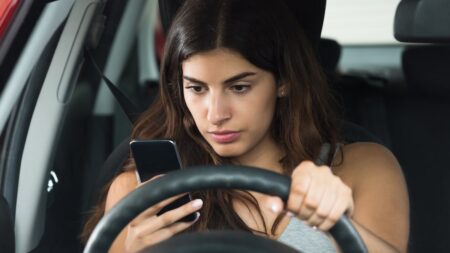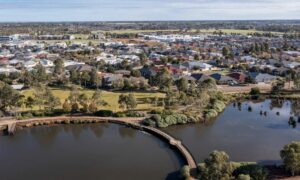These days, if anyone dares to suck on a plastic straw, there is a resounding cry of “you’re killing the turtles”.
Many cafes, even clubs and bars, have taken the #StrawNoMore campaign very seriously, deciding to stock paper straws in an effort to reduce waste impact.
We’re certainly conscious of the ‘War on Waste’, but we still have a long way to go. So what if I told you a Henley Beach primary school has banned both paper and plastic straws in favour of pasta tubes? What if I told you this is only one of many wins in the school’s phenomenal fight against waste?
South Australia’s Star of the Sea school is leading the way when it comes to environmental initiatives. The Henley Beach primary school is bin-less, a strong proponent of ‘Nude Food’ and ‘Nature Play’, and the home of a renowned Marine Discovery Centre, in which students learn first-hand about their marine environment and ocean conservation.
The Marine Discovery Centre is unique to the school, and a key part of the Science curriculum. Other schools in South Australia can also book in for an excursion experience to the centre.
According to Principal Joe De Tullio, interstate schools have made the trip over to take a look. The aim is to soon open the centre to the general public, as well as corporate groups looking to find a meaningful destination for functions or team building activities.
The Marine Discovery Centre features interactive models demonstrating the impact of climate change, South Australian marine life including six seahorses, sea urchins, and porcupine fish, plus a ‘Kaurna Room’ dedicated to Aboriginal education.
It is the only centre of its kind in South Australia, and was started 21 years ago by a teacher with the hope of educating students about their local marine life.

De Tullio tells me the school also has a Wipe Out Waste committee, headed by two teachers who are dedicated to working with students, or ‘Eco Warriors’, to instigate waste reduction initiatives.
The Eco Warriors wear green capes and ensure their fellow students are correctly disposing of waste.
Interestingly, De Tullio says the students eat their food in the classroom, and then head to a school grandstand to finish any remaining snacks. This has effectively worked to reduce spaces on the grounds in which food is consumed, thereby eliminating additional waste.
“One of our first initiatives was a mini bin challenge,” says De Tullio. “We placed a mini wheelie bin in each classroom, and challenged each class to reduce their waste so it fit in the one, small bin.”
According to De Tullio, the challenge was a great success, resulting in students and teachers becoming more aware of how to correctly dispose of waste.
Another initiative practiced at Star of the Sea is ‘nude food’. Parents are encouraged to reduce the plastic wrapping when packing lunches for their children, instead opting for Tupperware or reusable packaging.
De Tullio says leftovers such as banana peels and apple cores go into an organic bin, and the scraps are emptied into the three big worm farms at the school. The worms turn the scraps into ‘Worm Tea’, which students then sell to the parents as fertiliser.
Food scraps also go to the school’s chickens, which produce eggs for the tuck shop. You’ll also find a series of compost bins that produce fertiliser for Star of the Sea’s vegetable garden, which is tended to by the students.
Star of the Sea also stocks bamboo cutlery in the tuck shop as opposed to plastic, as well as the pasta tube ‘straws’.
“I have to admit I was sceptical,” De Tullio says, when I ask how the attempt to go ‘bin-less’ started.
So how have they gone?
“It’s been three years and the school has never been cleaner,” says De Tullio. There is a sense of pride in his voice, and so there should be.
Since going ‘bin-less’, the school has reduced dumpster waste by a quarter, going from four dumpsters to three per week. I’ve run the numbers, and given this statistic, in one year, Star of the Sea has reduced waste produced by nearly 60 tonnes.

Towards the end of our conversation, De Tullio admits there is still a long way to go.
“We haven’t got it perfect,” he says. “But I think we’ve made a good start.”
For the younger students at Star of the Sea, attending a school without bins is normal. It is De Tullio’s hope that soon enough, this will be the case in schools all over South Australia.
In the last 20 years, our population has increased by 28 per cent, and the amount of waste produced has increased by 170 per cent. It’s a pretty scary sentence. According to the ABC, each year, Australians generate millions of tonnes of waste in food, fashion, packaging, and more.
Change arguably begins with a nation’s youngsters, and there is echoing evidence suggesting that Australia’s environmental future may be in good hands with the rising generation of ‘eco-warriors’ in our schools.
“They’re the future,” says De Tullio.
The future seems to be in pretty good hands.
The Marine Discovery Centre is available for corporate events, and is actively seeking support for its fantastic programs.
For more on Star of the Sea, you can visit the website here.
Star of the Sea’s #Waronwaste stats:
- Glad Wrap reduced by 86%
- Styrofoam noodle cups reduced by 100%
- Paper lunch order bags reduced by 82%
- Plastic cutlery reduced by 72%
- Plastic straws reduced by 33% (Detullio says although the school does not stock plastic straws, they are still attached to fruit juice and flavoured milk boxes)
- Fruit boxes reduced by 65%
- Plastic zip lock bags reduced by 69%





















